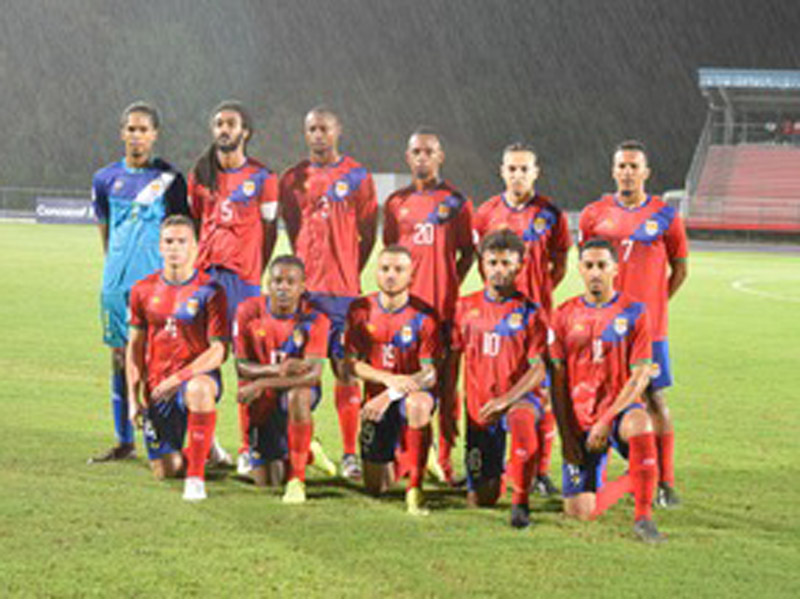Steve Menary: Nations League Offers New Hope To Cayman Islands
After being adopted from Europe, the Nations League idea has proved popular in the Caribbean by getting inactive national teams playing more regularly and providing winnable games.
The Cayman Islands is a shining example of how this has succeeded. Put in League C, Ben Pugh’s side won their opener in the US Virgin Islands then shocked favorites Barbados 3-2 in George Town. A 3-0 loss in Saint Martin followed but after wining their next two matches Pugh’s side went into the final game in Barbados top and with a shot at promotion.
“I think they underestimated us in the first game,” says Pugh, who only took charge in May and despite seeing his side downed 3-0 can only see positives.
“We hadn’t won a game for nearly nine years and this year we won four out of six,” adds Pugh.
“The first thing I had to do was add a bit of structure and create a better culture. From there we were able to build a team of players who are hungry to succeed as individuals and as a team. The goal is always to win games and be typically hard to beat. We’ve started this. There is of course a way to go.
“There’s lots of young talent here like Barry Tibbets, who is only 17 and has the potential to play at a higher level, but we’ve got to get them off the island as soon as possible to play,” adds Pugh, who was previously a coach in Ipswich Town’s youth set-up.
One of the few players to try and make a career abroad is 20-year-old Anton Nelson, who played in English non-league at Bognor in 2018/19.
“I travelled to the UK with no club or opportunity and just contacted every club I could find in non-league,” says Nelson. “My first season in the UK with Bognor was really a massive learning curve. I found the pace of the game was a lot quicker and you had far less time to make a decision.”
Nelson played for Llanelli in the Welsh Premier League in 2018/19, then after trials with Northern Irish Premier League clubs last summer headed home. Nelson did not feature in the Nations League and neither did Elijah Seymour, who is at FC Voluntari in Romania.
The only off-island player in Pugh’s Nations League squad was Mason Duval, an 18-year old left-back studying at Elon University in North Carolina. The rest were recruited locally.
“The Nations League has given our players a platform to show what they can do and test themselves against equal opposition and has also shown us that we have players who need a greater test than playing in our local league,” says Pugh.
The Cayman Premier League has 12 teams from the main island Grand Cayman. The two leading sides, Bodden Town and Scholars International, are competitive in Caribbean club competitions, but a single division has provided too many easy wins for the top sides.
“It changed to one league two seasons ago,” says Martin Cooke, director at Academy Sports Club, which was founded in 1995. “This season, the format is a little different whereby clubs play one round of matches, then the league gets split into two, with standings going on to determine who plays in what league next season.”
[collection name=”small” accordion=”mobile” excerpt=8]
The current format will change again next season with a return to two leagues and potentially the inclusion of the national U20 and U17 teams in the first and second tiers respectively.
Until two years ago, the league did feature a side from Cayman Brac, one of the other two islands in the chain. Michael Martin, who scored the opener in the win over Barbados and spent 2016/17 at Jamaican club Harbour View, used to play for Cayman Brac but the side withdrew due to the cost of travel.
Buoyed by their recent success, the Cayman Islands Football Association plan to develop their Centre for Excellence to include a dormitory to help reduce costs for clubs from outer islands and from overseas.
In the past, football on the Caymans has often been often a laughing stock. In 2000, British agent Barry McIntosh recruited a side of English football league mercenaries to play international football for a place they had never heard of. Then there was the hubristic fall of CIFA president Jeffrey Webb, who went on to become a FIFA vice president but was arrested for racketeering by the FBI in 2015.
In 2017, former referee Alfredo Whittaker won a tight ballot 8-7 to take over as CIFA president. Since then, the Cayman Islands have been in the news for the right reasons and Pugh is hoping that will continue in the next Nations League campaign in 2020.
Don’t forget to follow World Soccer on Facebook and Twitter.






